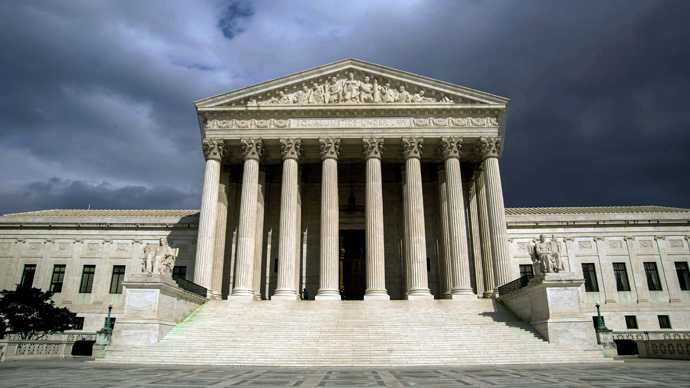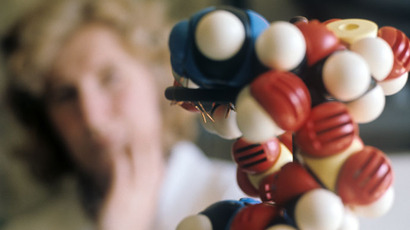US Supreme Court rules human genes can’t be patented

In a historic ruling that drastically affects the future of science and medicine, the Supreme Court unanimously decided that human genes cannot be patented, but that synthetically created DNA strands are “patent eligible”.
The ruling is a victory for science researchers who have been restricted from creating tests or treatment options involving human genes that were already patented. The case revolved around the Utah biotech firm Myriad Genetics, which was facing a lawsuit for placing patents on the BRCA1 and BRCA2 genes. These genes often appear with mutations in patients that eventually develop breast or ovarian cancer.
Award-winning actress Angelina Jolie last month announced that she had a double mastectomy after taking a test that found a mutation in one of her BRC genes.
As a result of its patents, Myriad has been able to monopolize research and testing for these genes, thereby preventing other doctors and researchers from developing alternate options involving the BRCA1 and BRCA2 strands. Women at risk of ovarian or breast cancer had no other options aside from taking the expensive Myriad test, which is not always covered by insurance.
But in its landmark ruling, the nine Supreme Court justices wrote that “a naturally occurring DNA segment is a product of nature and not patent eligible merely because it has been isolated.”
Scientists, doctors and researchers are now able to develop new tests for the BRCA1 and BRCA2 genes, as well as all other natural DNA that was previously patented.
“Today, the court struck down a major barrier to patient care and medical innovation,” Sandra Park, senior staff attorney at the American Civil Liberties Union, said in a statement. “Myriad did not invent the BRCA genes and should not control them. Because of this ruling, patients will have greater access to genetic testing and scientists can engage in research on these genes without fear of being sued.”
The US Patent and Trademark Office has granted universities, research institutes and medical companies patents on at least 4,000 human genes, and patents currently cover 40 percent of all human DNA, Reuters reports. These patents will no longer apply, but the Supreme Court did rule to allow the patenting of artificially created genes.
“Synthetically created strands of nucleotides known as composite DNA (cDNA)” are patent eligible, the justices wrote. This half of the court’s decision represents a partial victory for Myriad, which will be allowed to keep its patents on cDNA. The company’s shares jumped 10 percent to $37.47 after Thursday’s ruling.
“We believe the court appropriately upheld our claims on cDNA and underscored the patent eligibility of our method claims, ensuring strong intellectual property protection for our BRACAnalysis test moving forward,” Peter D. Meldrum, Myriad’s president and chief executive, told AP.
But with patents removed from human DNA, women at possible risk of developing breast or ovarian cancer may soon have other test and treatment options at a lower price.














